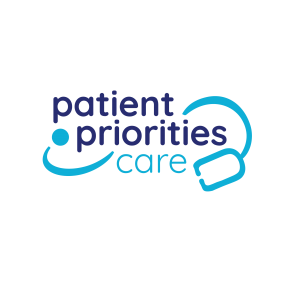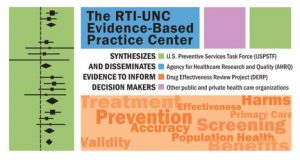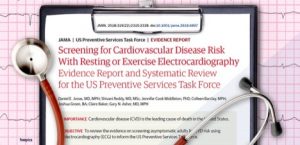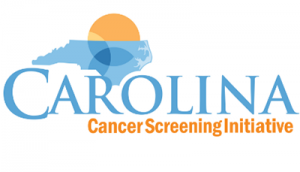Seth A. Berkowitz investigates ways to address food insecurity in vulnerable patients.
Seth A. Berkowitz, MD, MPH, is investigating programs that address food insecurity, for patients with limited or uncertain access to nutritious food because of cost, to consider how they might improve health and healthcare utilization. In one project, Berkowitz is working with Community Servings, Inc., a non-profit organization based in Boston, MA, that provides medically-tailored meals to individuals with serious illness.
 Made from scratch medically-tailored meals are prepared under the supervision of a registered dietician to meet the specific medical needs of the individual, and then delivered to the individual’s home. Because following a complicated, but medically necessary diet can be challenging for individuals facing poverty, medically-tailored meals offer the potential to improve adherence to a healthful diet, with corresponding improvements in health. Berkowitz and his team are using data from the Massachusetts All-Payer Claims Database to determine if medically-tailored meals are associated with reductions in inpatient hospitalizations, nursing home admissions, and healthcare costs.
Made from scratch medically-tailored meals are prepared under the supervision of a registered dietician to meet the specific medical needs of the individual, and then delivered to the individual’s home. Because following a complicated, but medically necessary diet can be challenging for individuals facing poverty, medically-tailored meals offer the potential to improve adherence to a healthful diet, with corresponding improvements in health. Berkowitz and his team are using data from the Massachusetts All-Payer Claims Database to determine if medically-tailored meals are associated with reductions in inpatient hospitalizations, nursing home admissions, and healthcare costs.
In a second study, partnering with Just Roots, a non-profit farm, Berkowitz is studying the use of community supported agriculture (CSA) in a randomized trial of patients in a federally-qualified health center. CSA is a model that enables individuals to purchase a share of a farm’s produce prior to the growing season. This approach can be good for both the individual, who gets weekly fresh produce, and the farm, 
which has a steady source of income and predictable demand for its crops. However, the cost of community supported agriculture can be prohibitive for low-income individuals. In this trial, researchers are studying a more affordable CSA model to determine if both diet quality and food insecurity in overweight/obese patients can improve. If effective, CSAs could be a new strategy for improving health in vulnerable patients.
Crystal Wiley Cené receives outstanding score on proposal to implement ‘patient priorities care’ in North Carolina.
Crystal Wiley Cené, MD, MPH, FAHA, is a health services researcher and implementation scientist with research expertise and passion for patient- and family-centered care. Her R01 proposal “Implementation and Evaluation of Patient Priorities Care-North Carolina for Older Adults with Multiple Chronic Conditions” received an impact score of 14 (2nd percentile) and is pending funding from the National Institute on Aging. Patient Priorities Care was developed by Mary Tinetti, a geriatrician at Yale (a co-investigator on the proposal), and her team, to address the limitations of disease guideline driven care when applied to older individuals with multiple chronic conditions (MCC). Care dictated by guidelines may be inconsistent with the patient’s own health outcomes and treatment preferences, resulting in unwanted care, greater treatment burden, decreased patient adherence, and increased harm.
 Patient Priorities Care is an ongoing process to align decision-making and care with patient priorities, the specific, realistic, attainable health outcome goals patients most desire given their health care preferences. Patient priorities care begins during a routine visit when a social worker, nurse, or medical assistant serving as the facilitator helps patients identify their health priorities and care preferences, which are entered into the patient electronic health record. During subsequent visits, the clinician collaborates with the patient and other clinicians and caregivers to align care with these priorities, by stopping, starting, or continuing therapies (medicines, tests, procedures). This approach to clinical decision-making has been shown to be feasible, acceptable to patients and clinicians, and effective at reducing perceived treatment burden, unwanted medications, and ambulatory health care utilization in a large community-based primary care practice in Connecticut and a small Veteran’s Administration clinic in Texas. However, Cené and her team will assess effectiveness and implementation success of the intervention in smaller practices in the rural South where multiple chronic condition patients are more racially, ethnically, and socio-economically diverse.
Patient Priorities Care is an ongoing process to align decision-making and care with patient priorities, the specific, realistic, attainable health outcome goals patients most desire given their health care preferences. Patient priorities care begins during a routine visit when a social worker, nurse, or medical assistant serving as the facilitator helps patients identify their health priorities and care preferences, which are entered into the patient electronic health record. During subsequent visits, the clinician collaborates with the patient and other clinicians and caregivers to align care with these priorities, by stopping, starting, or continuing therapies (medicines, tests, procedures). This approach to clinical decision-making has been shown to be feasible, acceptable to patients and clinicians, and effective at reducing perceived treatment burden, unwanted medications, and ambulatory health care utilization in a large community-based primary care practice in Connecticut and a small Veteran’s Administration clinic in Texas. However, Cené and her team will assess effectiveness and implementation success of the intervention in smaller practices in the rural South where multiple chronic condition patients are more racially, ethnically, and socio-economically diverse.
The long-term goal of this research is to re-engineer clinical decision-making for older adults with multiple chronic conditions, to center it within the health priorities of patients. The overall objective of this 5-year study is to implement and evaluate a patient priorities care (PPC) intervention in eight primary care practices in North Carolina (4 intervention and 4 usual care control) with 320 adults ≥65 years with multiple chronic conditions, using a hybrid effectiveness-implementation design. Guided by the minimally disruptive medicine model, our central hypothesis is that clinical decision-making guided by patient priorities will result in less burdensome care for patients and their families, increase patient goal setting, facilitate patient-provider shared decision-making, and improve patient quality of life and satisfaction with care. Findings from this study will inform practical approaches for aligning clinical decision-making and health care in older adults with MCC on what matters most: a patient’s own health priorities.
Co-investigators include Darren DeWalt, MD, MPH, chief of the division of general medicine and clinical epidemiology, and Arlene Chung, MD, MHA, MMCi.
Dan Jonas and Cindy Feltner lead meta-analyses to inform national guidelines.
 As leaders of the RTI-UNC Evidence-based Practice Center (EPC), Dan Jonas, MD, MPH, and Cindy Feltner, MD, MPH, direct a team of investigators and staff to produce rigorous evaluations of the evidence to inform clinical practice, guidelines, and healthcare policy. UNC Chapel Hill and RTI International have partnered for 22 years as an EPC funded by the Agency for Healthcare Research and Quality (AHRQ). The EPC work has included faculty with a wide range of expertise from across UNC’s professional health schools and the Health Care system.
As leaders of the RTI-UNC Evidence-based Practice Center (EPC), Dan Jonas, MD, MPH, and Cindy Feltner, MD, MPH, direct a team of investigators and staff to produce rigorous evaluations of the evidence to inform clinical practice, guidelines, and healthcare policy. UNC Chapel Hill and RTI International have partnered for 22 years as an EPC funded by the Agency for Healthcare Research and Quality (AHRQ). The EPC work has included faculty with a wide range of expertise from across UNC’s professional health schools and the Health Care system.
The EPC most recently published evidence reports for the US Preventive Services Task Force (USPSTF) in JAMA on screening with ECG, atrial fibrillation, intimate partner violence, unhealthy alcohol use, and child maltreatment.
Since 2018, the EPC has also supported the State of Washington’s Health Technology Assessment program by providing evidence assessments that inform state health policy determinations, most recently on the effectiveness and comparative effectiveness of sacroiliac joint fusion surgery.
Dan Reuland and Alison Brenner lead Carolina Cancer Screening Initiative.
Division members Dan Reuland, MD, and Alison Brenner, PhD, continue to develop a collaborative research program focused primarily on advancing the appropriate implementation of cancer screening in practice. Under the auspices of the recently-formed Carolina Cancer Screening Initiative, their work aims to narrow gaps between evidence-based guidelines and care delivery in real world practice.
A major focus of their work has been on improving colorectal cancer screening in vulnerable patient populations. In this area, they recently completed a multi-year, multi-site project led by Reuland and funded by the American Cancer Society that included a randomized clinical trial demonstrating the effectiveness of patient-directed decision support and navigation on improving colorectal cancer screening in diverse patient populations presenting to community health centers in North Carolina and New Mexico. With support from UNC Lineberger Comprehensive Cancer Center the University Cancer Research Fund, they also completed a trial, led by Brenner, demonstrating the effectiveness of mailing stool-based colorectal cancer screening tests to Medicaid patients from the Mecklenburg County Health Department in Charlotte. Collaborating with other Department of Medicine members in the GI division, they also completed a systematic review and meta-analysis of interventions to increase CRC screening completion. The team was recently awarded a five-year, $5.5 million grant from the National Cancer Institute’s Accelerating Colorectal Cancer Screening and Follow-up through Implementation Science (ACCSIS) program. This project will develop and test a centralized mailed outreach program of home stool testing in community health center populations in two regions of NC.
Another area of research emphasis has been lung cancer screening. Appropriate implementation of lung cancer screening is a relatively new field within cancer screening that is controversial, primarily because of the complex set of benefits and harms that result from screening heavy smokers annually with low dose CT scans. Despite the controversy, there is consensus among experts and guideline makers that patients need to be involved in decisions about screening. Reuland and Brenner have worked to advance this field with research including trials of decision aids to improve the patient understanding of the benefits and harms of lung cancer screening, quality improvement pilot to implement lung cancer screening in primary care and to improve standard reporting and tracking of lung nodules, and observational research evaluating shared decision making for lung cancer screening in practice.

